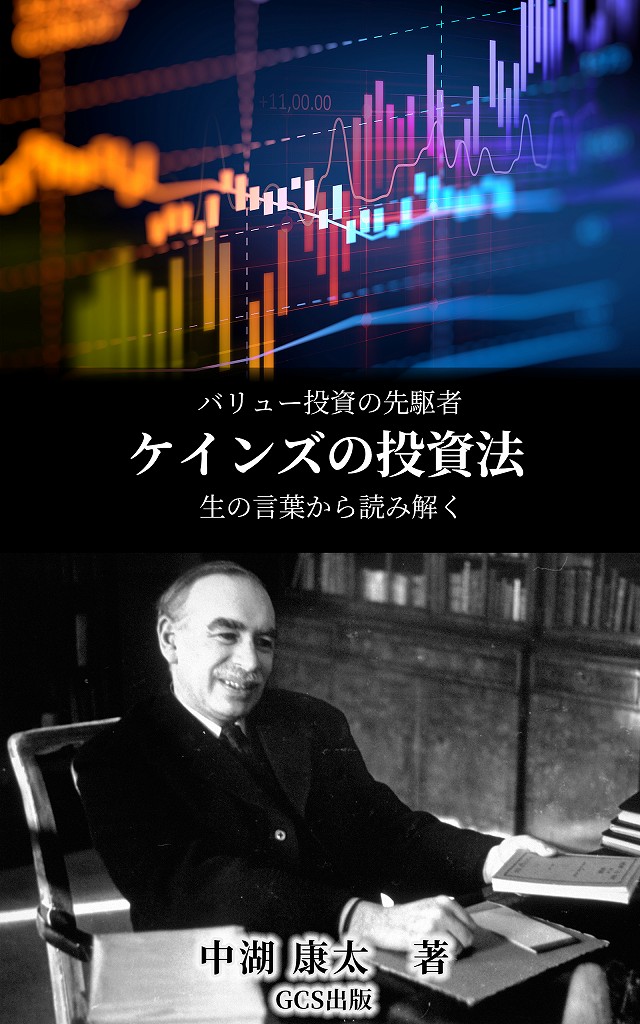(F.C.スコットへの書簡 1938.6.7 続き)
少数のしかるべき証券への集中投資
スコットへの書簡(1938.6.7)のIIIで、ケインズは、ポジション調整を急ぐ必要はない、と前置きした上で、「しかしながら早急にすべきことがひとつあります」と保有銘柄の見直しを求める。いわば放りっぱなしになった証券を整理して、しかるべき証券に集中投資を薦める内容だ。少数の優れたと判断した証券への集中投資は、ケインズの投資三原則のひとつだ。
ケインズの説得術
もうひとつここで触れたいのはケインズの説得術の一端だ。ケインズは、経済学者であると同時に、政府代表として国際金融交渉、シティでは資産運用を担当するなど優れた実務家であった。その説得術は、まず第一に、相手の考え方をよく聞く、尊重する、敬意を払う、そして、第二に持論を展開していく、というものだった。(KNコメント)
(以下、ケインズの書簡から。小タイトルはKN)
III
まずは相手の意見を尊重
変更すべき時は、あまり急ぐ必要はないと思います。より良い機会は、市場がより活発になり、リカバリーを示したときに来るでしょう。現状の停滞した市場では証券の売買(取引コスト)は高くつくでしょう。さらに、米国証券の保有を減らすタイミングが来た時に、私はその好機をつかみたいと思います。多分、全体の比率を変更させるに適切な機会になるでしょう。
忘れ去られた証券のロング・リスト
しかしながら、早急にすべきことがひとつあります。それは再調整を早急にすべきかどうかについて私を含め役員会全体で詳細な確認を行うことです。完全な保有リストをファイナンス委員会の全員に配布し、継続的な保有が適切かどうか再確認すべきことを提案したいと思います。これによって、どの証券が、保有すべきでないか、ということを発見することになるでしょう。機関投資家が陥りやすい誤りとして、当初購入した理由が忘れ去られ、また購入した理由がもはや存在しなくなった、現在であれば誰も保有したくないような証券が多数ありがちなことです。
銘柄の入れ替え、そして少数銘柄への集中投資
忘れ去れた多くの証券を売却し、集中保有すべき証券を購入にする交換の機会を提供することになるかもしれません。これによって、少なくとも役員の何人かが適切と判断する証券の保有を増やすことが可能になるでしょう。
(続く)
By Kota Nakako
2025/07/23
**************************
(Original text)
III
As regards the time for change, I agree with you that we should not be too precipitate. A better opportunity will be given when markets are more active and have shown some recovery. The present inactivity of markets makes exchanges of securities exceptionally expensive. Moreover, when the time comes for diminishing our holding in Americans – of which when it does arrive, I should wish to take advantage – this may offer a suitable opportunity for a general re-adjustment of percentages.
There is, however, one immediate step which might, I suggest, be helpful and facilitate some immediate re-adjustment as well as acting as a guide to the Board in general and to myself in detail. I suggest that a complete list of our holdings should be circulated to all the members of the Finance Committees, and that they should mark those securities about the continued holdings should be circulated to all the members of the Finance Committees, and that they should mark those securities about the continued holding of which they feel clearly it would be a mistake to sell in present conditions. This would enable us to discover which securities none of us holds a brief for. It is a leading fault of all institutional investors that their portfolio gradually tends to contain a long list of forgotten holdings originally purchase for reasons which no longer exist and for which no on holds a brief.
This might also provide an opportunity for some concentration of holdings by exchanging the forgotten holdings in order to increase the stake in those companies about which some of us at least have an instructed enthusiasm.
(To be continued.)

















